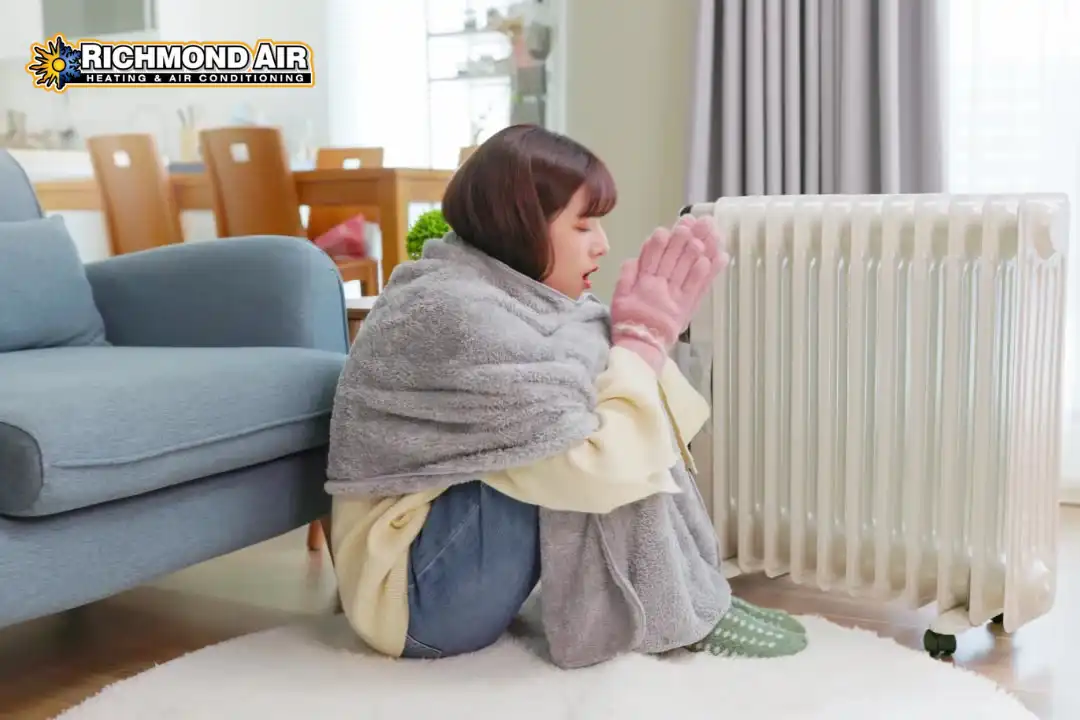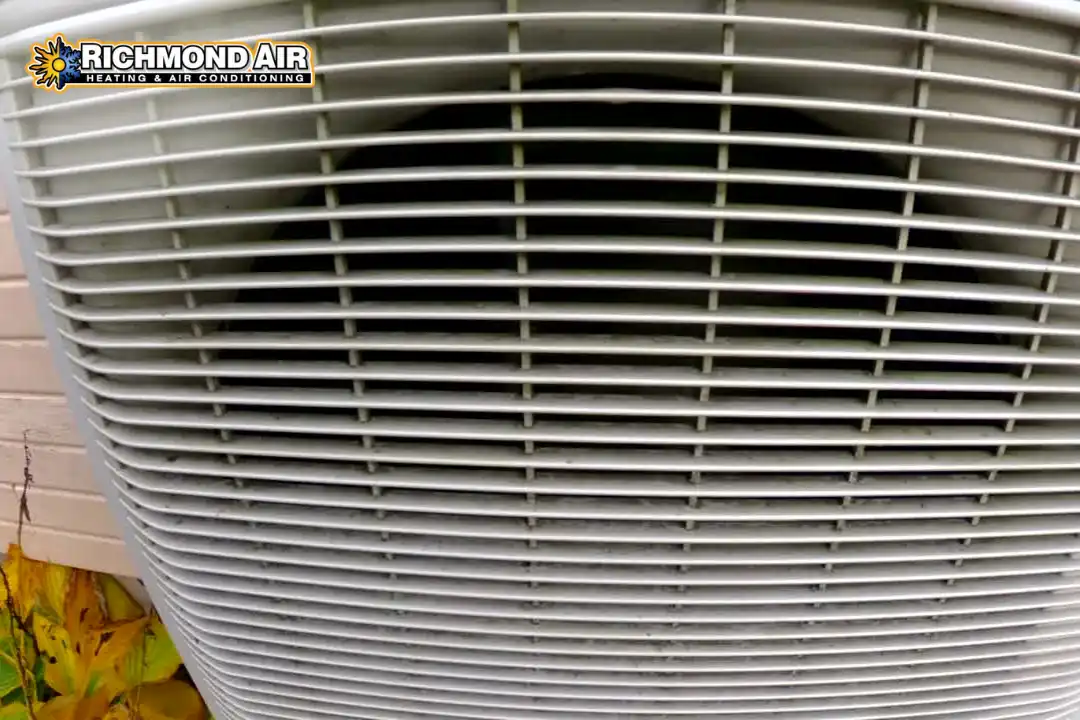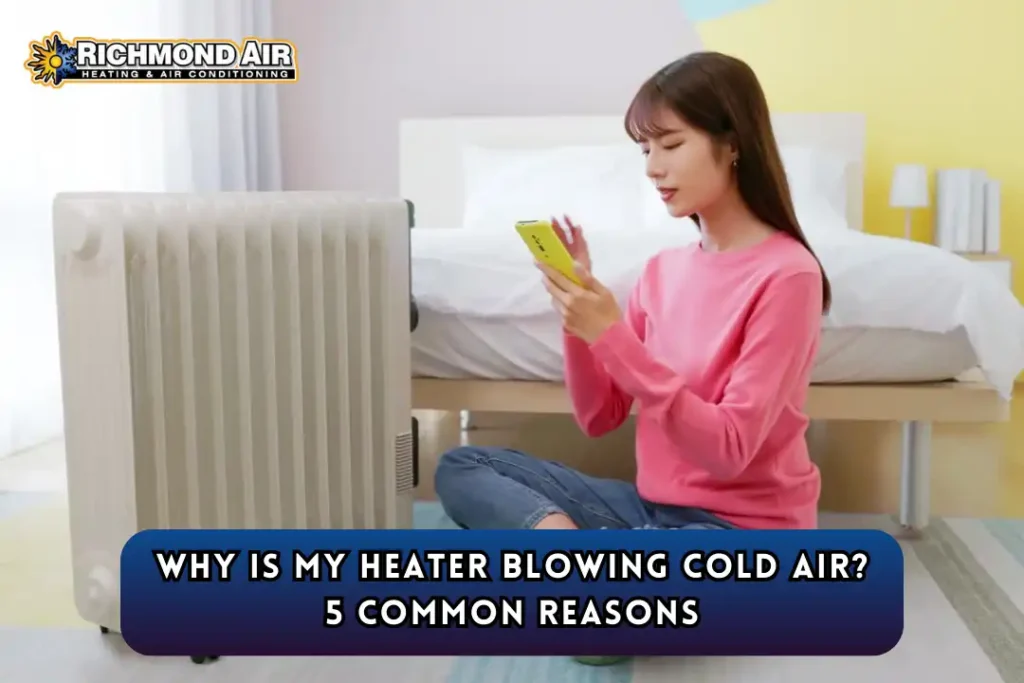There’s nothing quite like the betrayal of a heater blowing cold air on a frosty winter morning. You wake up, expecting the warm embrace of your heating system, only to be greeted by an icy blast that feels like nature’s way of mocking you. If you’ve ever found yourself asking, “Why is my heater blowing cold air?” you’re not alone. This is a surprisingly common issue, and the good news is that it’s often fixable without a full system replacement. Let’s dive into the possible reasons behind this chilly conundrum and, more importantly, how to solve it.
Why Is My Heater Blowing Cold Air?
5 Common Reasons Your Heater Is Blowing Cold Air
1. Your Thermostat Is Set Incorrectly
Before you panic and start Googling HVAC repair services, check your thermostat. It’s possible that it’s set to “fan” mode instead of “heat.” In fan mode, the system circulates air without heating it, which could explain the cold air.
Solution: Switch your thermostat to “heat” mode and set it to your desired temperature. If it’s already on “heat” and still blowing cold air, it’s time to investigate further.
2. Your Pilot Light Is Out (For Gas Heaters)
If you have a gas furnace, the pilot light is responsible for igniting the burners that heat the air. If the pilot light goes out, your heater won’t be able to produce warm air.
Solution: Relight the pilot light following the manufacturer’s instructions. If it won’t stay lit, you may have a faulty thermocouple or a gas supply issue, which will require professional assistance.
3. Clogged Air Filters
Dirty air filters can restrict airflow, causing your heater to overheat and shut down as a safety precaution. When this happens, the system may blow cold air instead of warm.
Solution: Check your air filters and replace them if they’re dirty. As a rule of thumb, you should replace filters every 1-3 months, depending on usage and the type of filter.
4. Leaky Ductwork
If your ductwork has leaks or gaps, warm air could be escaping before it reaches your vents. This not only results in cold air but also increases your energy bills.
Solution: Inspect your ductwork for visible leaks or hire a professional to perform a thorough inspection. Sealing the leaks with duct tape or mastic sealant can improve airflow and efficiency.
5. Your Heater Is Too Small for Your Space
If your heater isn’t powerful enough to heat your entire home, it may struggle to maintain a consistent temperature, especially during extreme cold.
Solution: Consult an HVAC professional to determine if your system is appropriately sized for your home. Upgrading to a larger unit may be necessary.
Why Is My Heater Blowing Cold Air Only Sometimes?

If your heater alternates between blowing warm and cold air, the issue could be related to your system’s cycle. Most heaters operate in cycles, meaning they turn on and off periodically to maintain the set temperature. However, if the cold air persists, it could indicate a problem with the thermostat, sensors, or even the blower motor.
How I Learned the Hard Way
A few winters ago, I woke up to a house that felt more like a walk-in freezer. My heater, which had been working fine the night before, was suddenly blowing cold air. After a brief moment of panic (and a lot of shivering), I discovered that the thermostat was accidentally set to “cool” instead of “heat.” It was a rookie mistake, but it taught me the importance of checking the simple things first.
Later that same winter, I faced a more serious issue when my pilot light went out. Relighting it was a nerve-wracking experience, but it saved me from an expensive service call. These experiences taught me that while some heating issues are easy to fix, others require professional help.
Fun Fact: The History of Central Heating
Did you know that central heating dates back to ancient Rome? The Romans used a system called “hypocaust,” which circulated hot air under floors and through walls to heat their homes and public baths. While modern systems are far more advanced, the concept of distributing heat efficiently remains the same. According to EngineeringRome, “We have engineered a thermally neutral world—perfectly 70 degrees—but in doing so, we have also severed our connection to the natural world.” This shift underscores how, while our modern heating systems are more efficient, they have distanced us from the natural rhythms of the environment.
Why Space Heating Is So Important

Space heating continues to be the top energy-consuming end use in U.S. homes. According to the U.S. Energy Information Administration (EIA), “Space heating continued to be the top energy-consuming end use in U.S. homes in 2020 according to the Residential Energy Consumption Survey (RECS). Heating homes accounted for 42% of energy consumption in the residential sector.” Given that your heater uses such a significant amount of energy, any issues affecting its performance, whether it’s a faulty thermostat or leaky ducts, can impact your comfort and energy bills. Therefore, resolving heater problems not only keeps your home warm but also helps improve energy efficiency and lower costs.
Final Thoughts
A heater blowing cold air can be frustrating, but it’s often a solvable problem. From simple fixes like adjusting your thermostat to more complex issues like repairing ductwork, understanding the root cause is the first step toward a warm and cozy home. Remember, regular maintenance is key to preventing these issues in the first place.
If you’re still struggling to figure out why your heater is blowing cold air, don’t hesitate to seek professional help. A licensed HVAC technician can diagnose and fix the problem, ensuring your home stays warm all winter long.
Don’t let a malfunctioning heater ruin your winter. If you’re tired of troubleshooting on your own, contact a Richmond HVAC professional today. We can identify the issue and provide a lasting solution so that you can enjoy a warm and comfortable home.
FAQs
Why is my heater blowing cold air after I changed the filter?
If your heater is still blowing cold air after replacing the filter, it could be due to a tripped safety switch caused by overheating. Reset the system and ensure the new filter is installed correctly.
Can a dirty flame sensor cause my heater to blow cold air?
Yes, a dirty flame sensor can prevent the burners from staying lit, resulting in cold air. Cleaning the flame sensor with fine-grit sandpaper can resolve this issue.
Why does my heater blow cold air only at night?
This could be due to a drop in outdoor temperatures overwhelming your system or a thermostat programmed to lower the temperature at night. Check your thermostat settings and consider insulating your home better.
How do I know if my thermostat is broken?
If your thermostat doesn’t respond to adjustments or displays incorrect readings, it may be faulty. Replacing the batteries or upgrading to a smart thermostat can help.
When should I call a professional?
If you’ve tried the basic troubleshooting steps and your heater is still blowing cold air, it’s time to call an HVAC technician. Issues like gas leaks, faulty wiring, or a broken blower motor require professional expertise.


